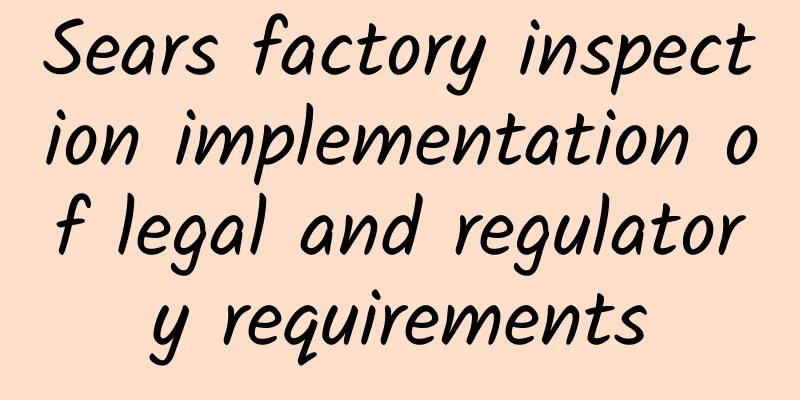The relationship between corporate social responsibility and sustainable development

|
Sustainable development and social responsibility are mutually integrated and develop harmoniously. People in society show natural attributes and social attributes, and they will inevitably have some kind of connection with society. As one of the main bodies of social development, enterprises are naturally inseparable from their social attributes. The essence of the existence of enterprises may be what Coase described in his paper, which is to reduce transaction costs. But this is not the focus of this article. Our focus is that the existence of enterprises naturally shows the attribute of providing certain specific services to society, and society gives enterprises certain returns while accepting services provided by enterprises. The society here refers to the sum of the environment faced by enterprises, including the enterprise's stakeholders, for the survival and development of enterprises. In this way, enterprises achieve their own sustainable development by continuously improving the quality of services provided to society, improving the society's satisfaction with services and recognition of enterprises. The enhancement of the sustainable development capacity of enterprises is also manifested in providing better specific services to society. The survival and development of enterprises must exist in society. The stability and sustainable development of the social environment are the basis for the sustainable development of enterprises, and the recognition of enterprises by the society further promotes the sustainable development of enterprises. Therefore, the social responsibility of enterprises is manifested in two aspects: providing better specific services to the society - the value of the enterprise's existence; making contributions to the improvement of the social environment to the best of their ability - improving the soil on which the enterprise depends for survival and increasing the social recognition of the enterprise. The social responsibility of the first level is the fundamental guarantee for the survival of the enterprise. If the enterprise cannot provide specific services that satisfy the society or the social demand for such specific services changes and the enterprise does not follow up on this change, then the enterprise will be eliminated because it has not assumed its due social responsibility. The social responsibility of the second level is the comprehensive embodiment of better sustainable development under the premise of the survival of the enterprise. The social responsibility of this level is specifically manifested as follows: enterprises should try their best to eliminate the damage to the external environment caused by their own development; enterprises should strive to improve the social environment on which their own development depends; enterprises should assume greater social obligations and enthusiastically participate in social welfare undertakings. In the process of fulfilling their social responsibilities, enterprises must abide by laws, administrative regulations, social morality, business ethics, be honest and trustworthy, and accept supervision from the government and the public. Different enterprises should rely on certain aspects in fulfilling their social responsibilities. The resources and energy for enterprise development are limited. It is difficult for an enterprise to be perfect in all aspects of social responsibility. Therefore, before an enterprise fulfills its social responsibility, it should have a clear social responsibility development plan and social responsibility management system. Clarify the social responsibility choice for its own development. 1. From the perspective of the nature of the enterprise, enterprises of different natures have certain corporate social responsibilities. However, since state-owned enterprises are mostly in more important industries and fields in the national economy, their own development has a more important impact on promoting the development of industries and fields and even the entire society. Compared with other enterprises, they bear more important responsibilities for promoting the healthy and rapid development of the social economy. At the same time, the national nature of state-owned enterprises, on the one hand, determines that they need to bear the responsibility of undertaking the national macroeconomic adjustment and make efforts to promote the stability and sustainable development of the society. On the other hand, state-owned enterprises also need to play a broad role in production and operation, management concepts, and social welfare. Private enterprises mostly rely on their own conditions to follow up. Therefore, in general, the social responsibility of state-owned enterprises is more extensive and in-depth, while private enterprises mostly rely on their production and operation conditions to selectively assume social responsibilities in production and operation, management concepts, and social welfare. 2. From the perspective of industry development, different industries have different positions in the national economy, and their responsibilities for social and economic development are also different. On the one hand, different industries bear different responsibilities for promoting economic and social development. For example, the IT industry bears the responsibility of promoting the development of the entire society's informatization, while the education industry bears the responsibility of improving the entire social and cultural level; on the other hand, the characteristics of the industry also determine the differences in the focus of their social responsibilities. For example, the social responsibility of the food industry needs to focus on food quality and safety, and the energy industry needs to focus on environmental protection and resource conservation. 3. From the perspective of the development stage of the enterprise, enterprises in the embryonic and growth stages often pay more attention to the survival and development of the enterprise, and the social responsibility of the enterprise is mostly reflected in the benefits brought to stakeholders by the development of the enterprise itself. As the enterprise continues to grow and mature, on the one hand, the social responsibility of the enterprise will gradually deepen, such as actively promoting the improvement of product and service quality and the emergence of new technologies, new products, and new management concepts; on the other hand, the social responsibility of the enterprise will gradually expand from the production and operation of the enterprise itself to resource conservation, environmental protection, and social welfare. Therefore, with the continuous development of the enterprise, the social responsibility of the enterprise continues to deepen and expand. The current situation of state-owned enterprises fulfilling social responsibilities Since the mid-to-late 1990s, the corporate social responsibility movement has gradually emerged in some developed countries, advocating that enterprises should assume social responsibilities to stakeholders while pursuing profits. Some international organizations, including the United Nations, have also formulated "Corporate Production Guidelines" and SA8000 Corporate Social Responsibility Management System and other guidelines, which have been accepted by more and more countries, international organizations and enterprises. my country's corporate social responsibility started late. On March 10, 2006, China Grid Corporation officially released the first social responsibility report of central enterprises, which attracted widespread attention from the society. The content of the State Grid social responsibility report received different reactions from all walks of life. Many media criticized it, believing that the content of the report was seriously out of touch with the theme of social responsibility; but this at least reflects that Chinese enterprises have begun to realize the importance of social responsibility to the sustainable development of enterprises. On December 29, 2007, the State-owned Assets Supervision and Administration Commission issued the "Guiding Opinions on the Fulfillment of Social Responsibilities by Central Enterprises", which put forward requirements from eight aspects. This shows that the government, society and state-owned enterprises themselves have paid more and more attention to the assumption and fulfillment of corporate social responsibility, and have truly incorporated the fulfillment of social responsibility into the daily work of enterprises. As of the end of June 2008, more than 20 central enterprises have released corporate social responsibility reports or sustainable development reports. In general, Chinese enterprises have become increasingly mature in their understanding of social responsibility, gradually moving away from the narrow view that poverty alleviation and public welfare donations are social responsibility, and beginning to understand and examine corporate social responsibility from the perspective of the broad concept of social responsibility. However, it is still undeniable that Chinese enterprises are currently wavering between corporate sustainable development and social responsibility performance. This wavering is reflected in: Social responsibility reports are more of a summary and induction of corporate social responsibility performance, and lack a deep understanding of what kind of social responsibility enterprises should assume in the future and how to perform social responsibility. From the content and form of the social responsibility reports currently released by existing enterprises, enterprises' understanding of social responsibility is mostly a summary of their historical behavior, and they only see their own good aspects. This fully shows that enterprises do not really understand what social responsibility is and how to do it. If they do not know how to do it, they will not know in which areas there is room for further improvement. If an enterprise does not know or has not discovered its own shortcomings in the past year or even longer, should we be proud of this enterprise? Social responsibility is from the outside to the inside. It is the initiative of the enterprise rather than its own behavior. Now the social responsibility of enterprises is more of the social responsibility of entrepreneurs rather than the enterprises themselves. Although enterprises have taken the initiative (rather than spontaneously) to compile and publish social responsibility reports, they are only to meet the needs of investors, shareholders or other stakeholders, or to promote their own enterprises by taking advantage of the trend of social responsibility as a social hot spot. Enterprises are made up of people. If the social responsibility of an enterprise is only reflected in how much social welfare, how much social environment and social welfare the enterprise has done under the decision of the leader, then this can only be regarded as the social responsibility of the entrepreneur, rather than how much social responsibility the enterprise has fulfilled. The social responsibility of an enterprise should be the social responsibility of the entrepreneur and the willingness of all employees within the enterprise, and this idea should be reflected in daily work and behavior. Establishing a corporate social responsibility management system with culture as the guide From the recognition of social responsibility to the cultivation of social responsibility, an enterprise is a process from scratch and step by step. Establishing a corporate social responsibility management system with culture as the guide is an important means to strengthen the enterprise's understanding and practical fulfillment of social responsibility. 1. Formulate a social responsibility management system Enterprises should combine social responsibility with sustainable development to position the social role of enterprises. Incorporate social responsibility into the development strategy of the enterprise and improve the initiative to assume social responsibility. By starting from the nature of the enterprise, the nature of the industry, and the stage of enterprise development, clarify the positioning of corporate social responsibility - use limited corporate resources to assume the most important social responsibility. Enterprises should also clearly understand their own advantages and areas for improvement in fulfilling social responsibility. Through the social responsibility management system, social responsibility and corporate development are organically combined to promote the sustainable development of enterprises. 2. Guided by culture Corporate culture is the internal driving force of corporate development and has a strong cohesive effect. Corporate culture can tightly bind and unite the majority of employees, so that employees have a clear purpose and move in unison. In order to effectively combine the social responsibility of entrepreneurs with the social responsibility of enterprises, and let social responsibility penetrate into the hearts of every employee, enterprises should integrate social responsibility into corporate culture and improve the social responsibility of enterprises through corporate culture construction. Source: China Shoes Network |
<<: Chinese companies attach importance to social responsibility and green development
>>: Walmart's ES factory inspection turns orange "susceptible zone"
Recommend
Green Development——Recycled Fiber
Socialism with Chinese characteristics has entere...
All BSCI members who need factory inspection (five)
JC factory inspection consultation/certification ...
The difference between organic cotton and pure cotton
Many people cannot distinguish between organic co...
What is a C2C platform? What is its profit model?
What is C2C platform? C2C is also called CTC, whe...
Sedex-(Supplier Ethical Data Exchange)
Sedex is the abbreviation of Supplier Ethical Data...
What is Foxde? What are Foxde's services and advantages?
Shenzhen Foxde Information Consulting Co., Ltd. w...
What is Ifttt? What are the advantages and applications of ifttt?
Ifttt is the abbreviation of "if this then t...
What is Ocopa? What is the development history of Ocopa?
What is Ocopa? AOKOBA is a company engaged in the...
ETI Basic Principles
Basic Principles 1. Freely chosen employment rela...
Common fire safety issues and solutions during BSCI factory audits (I) Fire hydrants blocked by cargo
Problem phenomenon: The fire hydrant is blocked b...
What are the features of AMZScout? How much does AMZScout cost?
What are the features of AMZScout? How much does ...
What is the Chinese official website of eBay? How to buy from overseas on eBay?
ebay/" target="_self">ebay Chin...
What is the IPPC mark? Why should we apply the IPPC mark?
What is the IPPC mark? The IPPC logo is the inter...
The significance of ISO17025 laboratory accreditation
ISO17025 is an international standard for laborato...
ICTI approved audit company
ICTI approved audit company Audit Company Technic...









